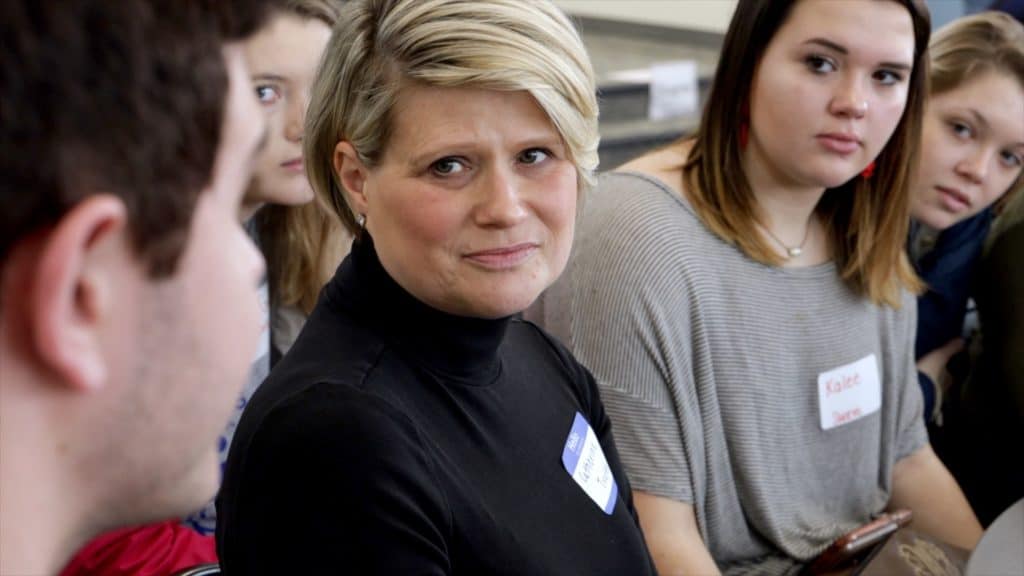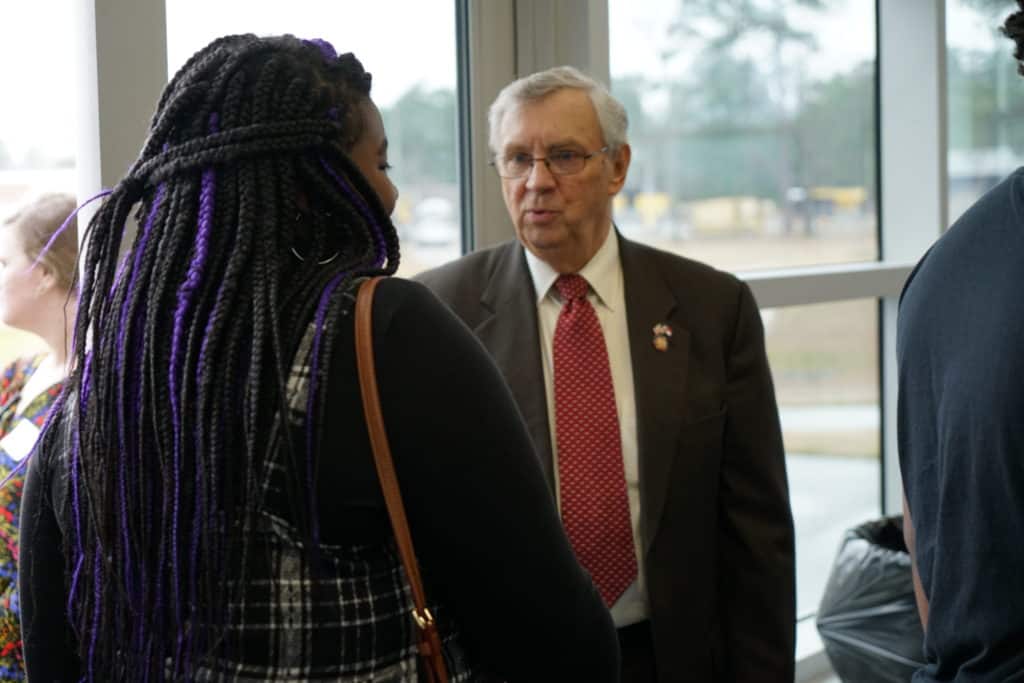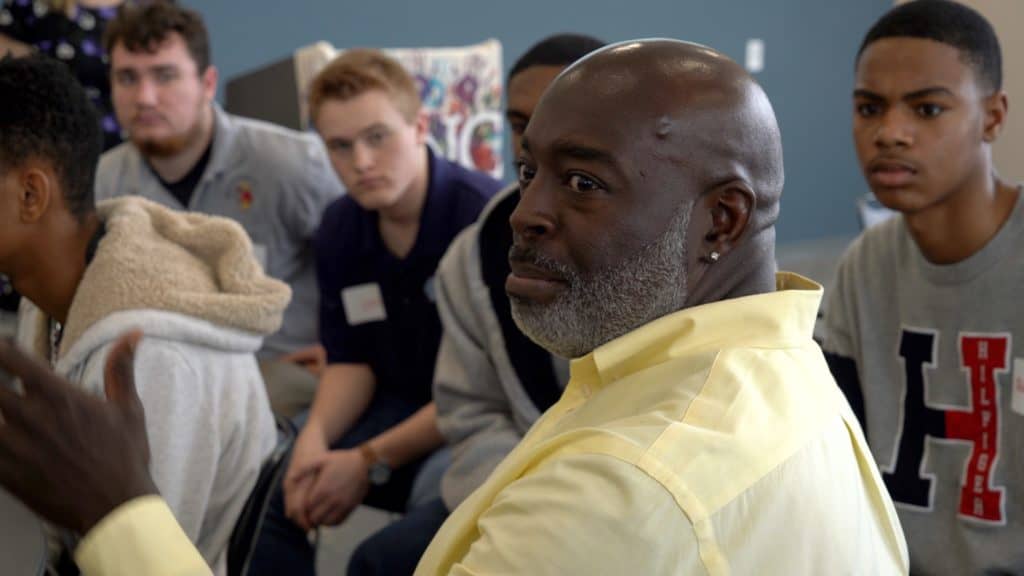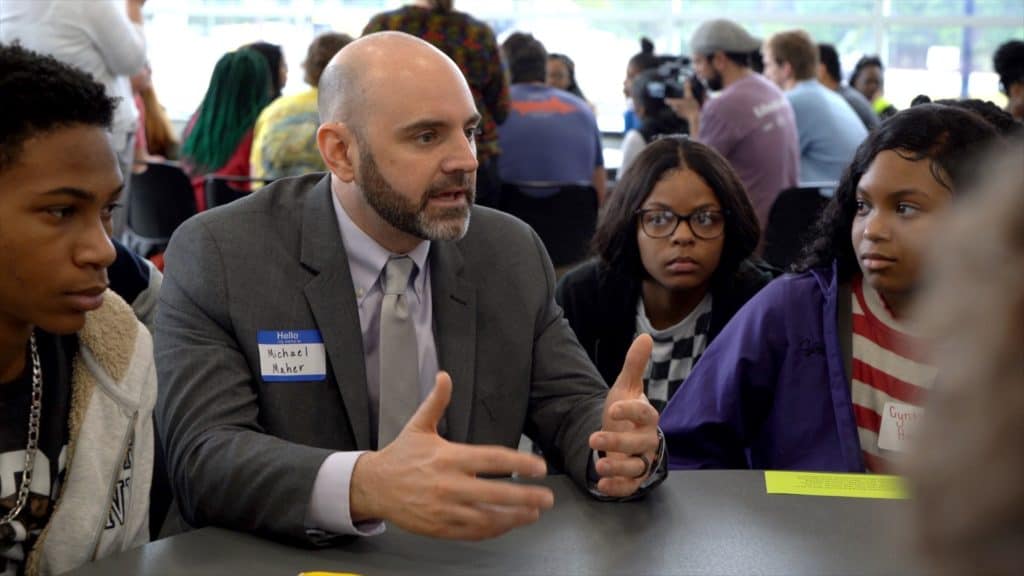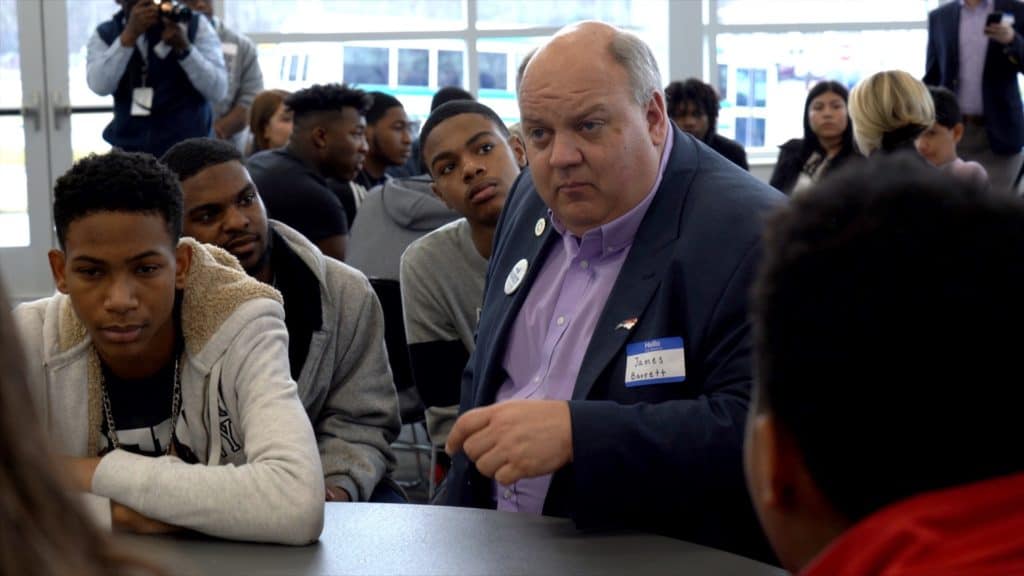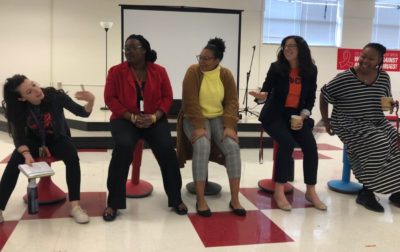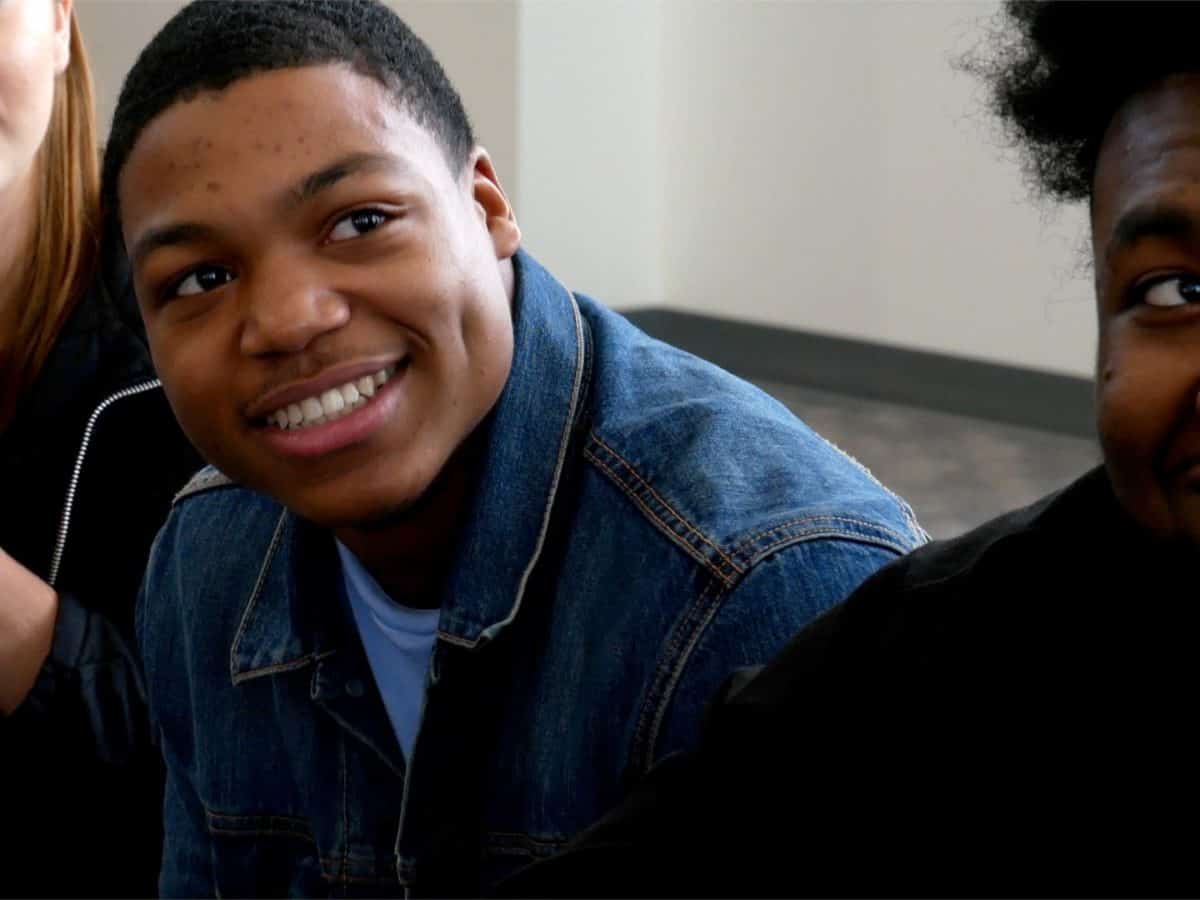
“Our priority,” said Matt Bristow-Smith, the principal of the Edgecombe County Early College, “is lifting up young people as engaged members of the democratic process.”
With a collective fist bump, Bristow-Smith and Donnell Cannon, another principal in Edgecombe County, kicked off EdNC’s first ever student town hall in the brand new Center of Innovation at Edgecombe Community College.
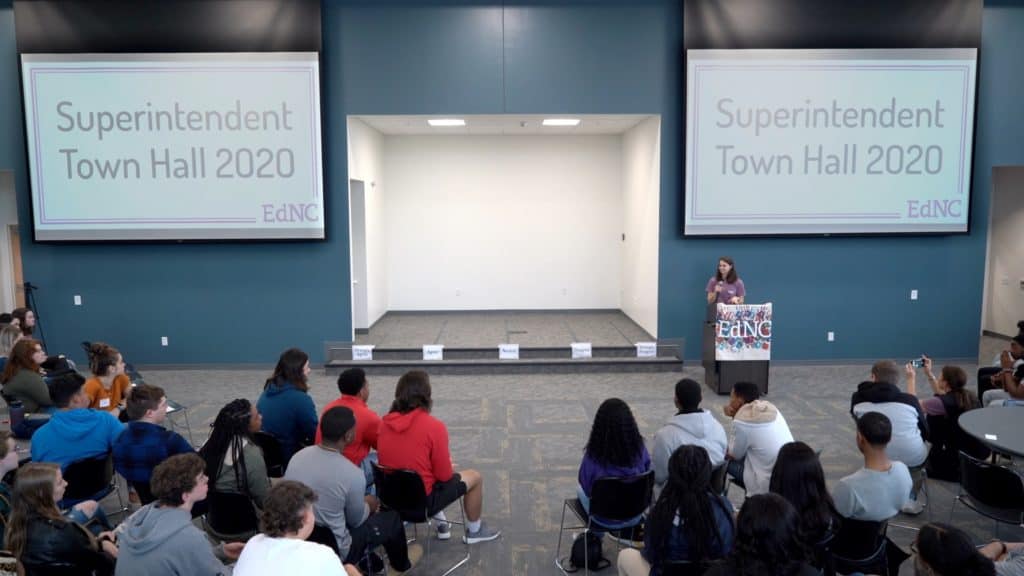
120+ students from four high schools. Five candidates for Superintendent of Public Instruction. A whole new model for the future of town halls, civil discourse, and democracy.
EdNC’s model of student-candidate engagement
From Oct. 8 to Dec. 6, 2019, Alli Lindenberg, EdNC’s engagement specialist, piloted our town hall model, holding six town halls at five community colleges across North Carolina. Through a virtual town hall launched in January 2020, we reached even more students. The town halls were called, “Here to listen.” Lindenberg is 24.
Lindenberg greeted the students to our town hall in Edgecombe County yesterday saying, “You are the future of democracy.”
After the collective fist bump, Cannon said to the students, “You can sprinkle magic across society. Let’s push forward the things closest to your heart. There is power in the room today.”
By a show of hands we learned just five of the students had ever talked to a candidate for any public office.
There are seven candidates for Superintendent of Public Instruction, and five participated in our town hall: James Barrett, Rep. Craig Horn, Michael Maher, Keith Sutton, and Catherine Truitt. Jen Mangrum could not attend the forum because she was teaching class. Constance Lav Johnson indicated via email she would attend, but she did not show up and EdNC was not able to reach her.
We wanted to introduce the candidates to the students in a way that was authentic to the place where we were holding the town hall. The principals are known for this “who are you” activity, which is designed to get people connected in more authentic ways pretty quickly.
At our town hall, Abdur Gant, a senior at the Edgecombe County Early College, asked each candidate one by one, over and over, for one minute, “Who are you?” Ask any of the candidates — at about 45 seconds in, it starts getting real.
What resonated with the students? When Truitt said she was a breast cancer survivor. When Sutton said he grew up in Edgecombe County. When Horn said he was a veteran. When Barrett said he was called to serve. And when Maher said he’s a first-generation college student.
Then we wanted the students to see, literally, where the candidates stand on the issues. On seven policy statements, the candidates were asked to stand on a continuum from strongly agree to strongly disagree. We had already surveyed the students on the same policy issues. Take a look.
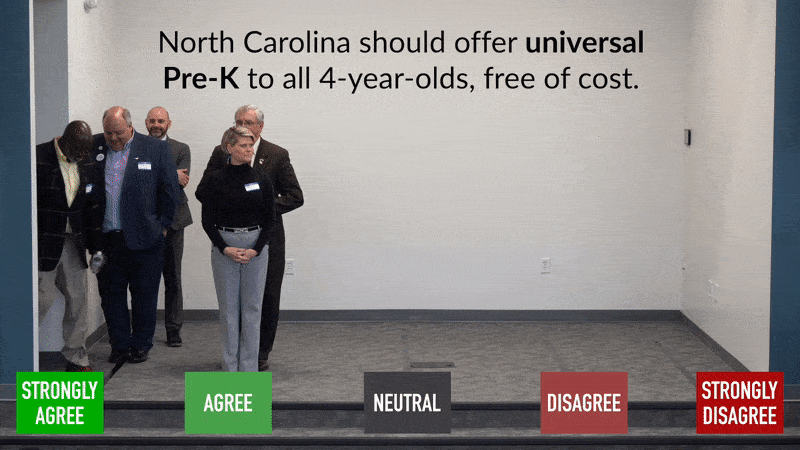
Of 181 student responses, 62% strongly agree, 24% agree, 9% were neutral, and 4% said other.
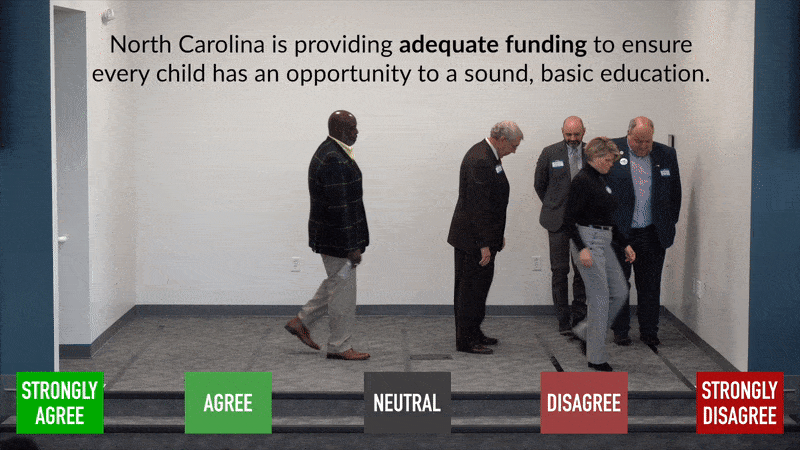
Of 173 student responses, 28% were neutral, 24% agree, 23% disagree, 10% strongly agree, 9% strongly disagree, and 6% said unsure.
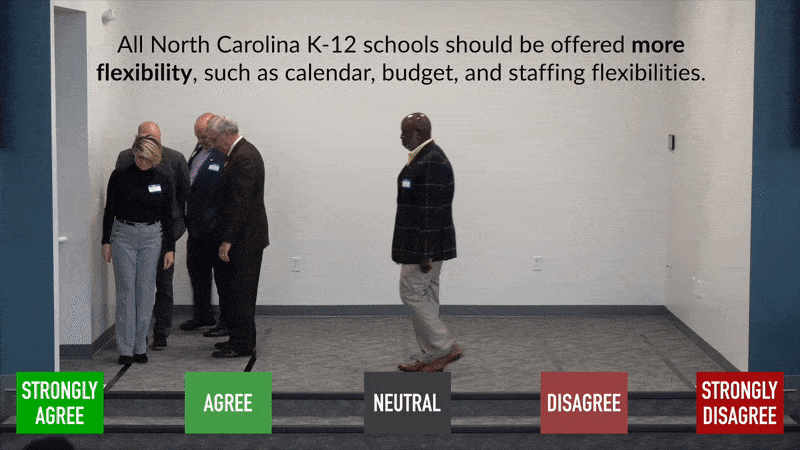
Of 173 student responses, 46% strongly agree, 43% agree, 7% were neutral, and 3% said other.
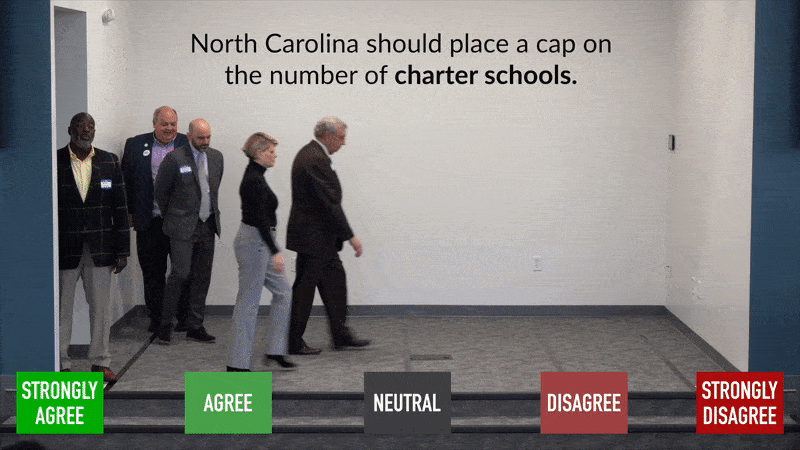
Of 173 student responses, 46% were neutral, 20% said unsure, 20% agree, 8% strongly agree, 5% disagree, and 1% strongly disagree.
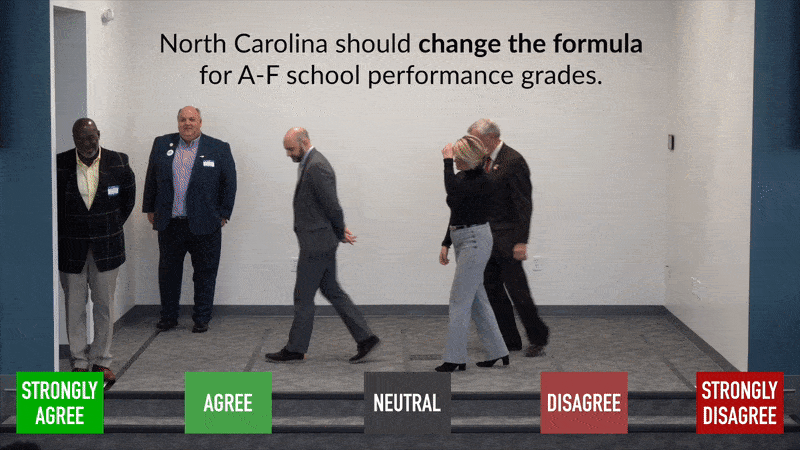
Of 170 student responses, 32% were neutral, 24% agree, 15% disagree, 14% said unsure, 9% strongly agree, and 6% strongly disagree.
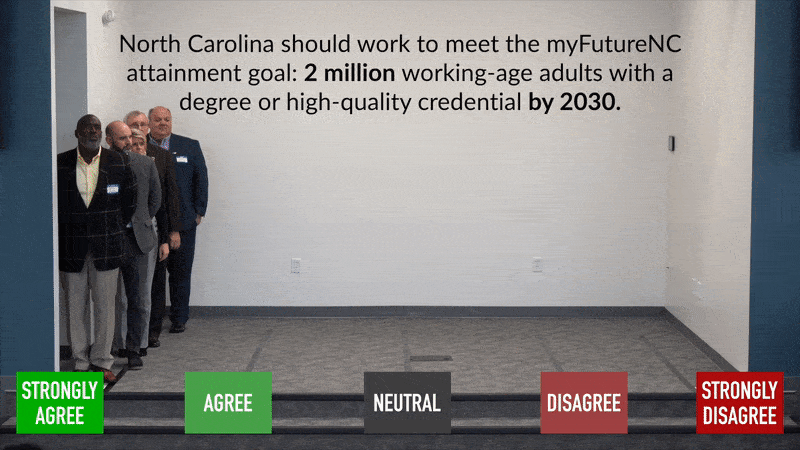
Of 170 student responses, 39% agree, 34% strongly agree, 15% were neutral, 9% said unsure, and 3% said other.
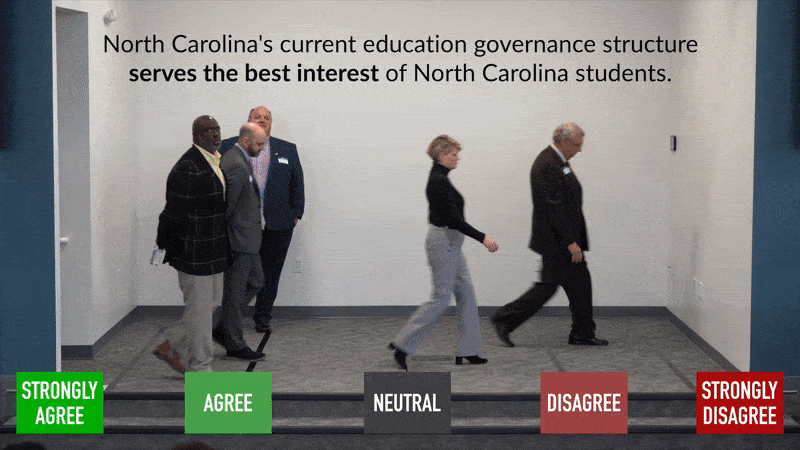
Of 170 student responses, 32% disagree, 26% were neutral, 17% agree, 12% strongly disagree, 9% said unsure, and 3% strongly agree.
The students then broke into six small groups and the candidates rotated among all of them. The students had worked with their school leaders on six questions to ask the candidates.
Many rural students live in poverty, have mental health challenges like anxiety or depression, or deal with “life challenges” that have nothing to do with school. How are we supposed to learn or to care about our futures when we need help and can’t get it? Especially in rural school systems, we just don’t have enough counselors, psychologists, and social workers to serve the needs of our students. What could be done to address this issue, and what would you personally do as state superintendent about this issue?
We have a lot of young people in our schools who would be great teachers, but when we think about paying for a college education and then going into teaching starting at $35,000 per year, the numbers just don’t add up. We are your talent pool, and you’re missing us! What can be done to make the teaching profession more attractive for us, and what would you personally do as state superintendent about this issue?
A lot of our schools treat misbehavior from students as if we are criminals. When a student breaks a rule, he is sent to in-school or out of school suspension and loses instructional time. No one tries to help the student improve his behavior, and there’s almost never a chance for us to make it right or even to apologize when we screw up. It’s a “do the crime, do the time” approach. And the worst thing is that the same kids who get in trouble are also those who fall behind academically in their classes. What can be done to make sure that schools help kids learn from their mistakes instead of just punishing them, and what would you personally do as state superintendent to promote restorative justice programs in schools?
Some kids have lots of opportunities during the summer time to go to camps, take vacations, get jobs, and even take classes. In rural counties, a lot of young people have nothing at all to do during the summer. It’s dead time for us. It’s more than “summer learning loss.” It’s “summer opportunity loss.” What can be done about this issue, and what would you as state superintendent personally do to help this situation?
It sometimes feels like a lot of what we learn in school has nothing to do with what we need to know to be successful in life. And even though we earn a high school diploma, that diploma doesn’t guarantee that we are ready for whatever comes next after high school. What can be done to make sure our schools are graduating us ready for college, career, and life, and what is one specific move you would take as state superintendent to ensure a high school education and a high school diploma open doors of opportunity, especially for us rural kids?
Our state has more rural students than almost any other state in the country, but we need someone in Raleigh who speaks for us. We need someone who sees every decision in terms of how it impacts kids in rural counties and who makes decisions with us instead of for us. What is your personal vision for rural education in NC, what must be done to make this vision become a reality, and how are you specifically qualified to represent rural schools as state superintendent?
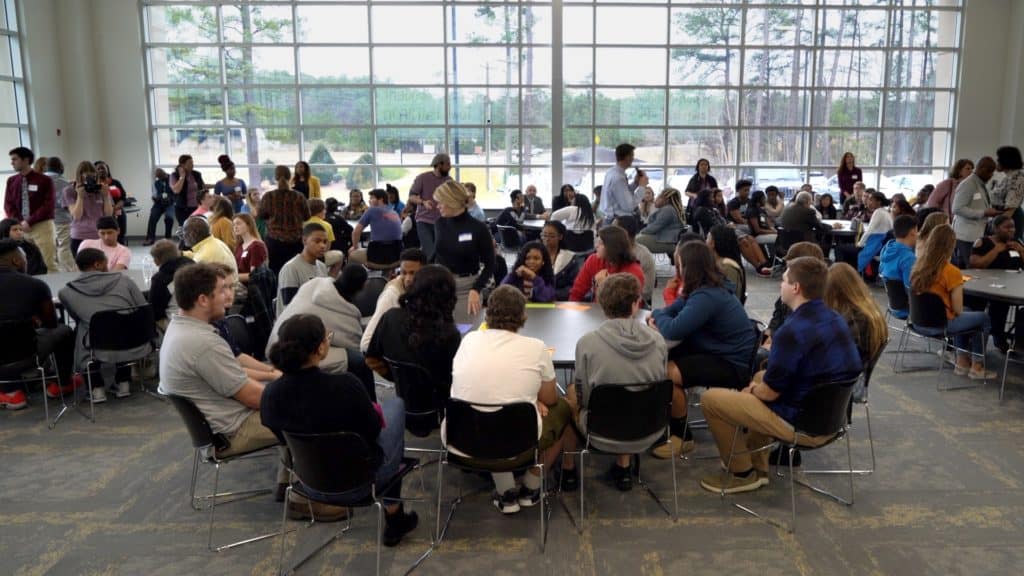
Short one candidate, on the fly we recruited a student to run for superintendent. Meet Tanauriah Wilkins.
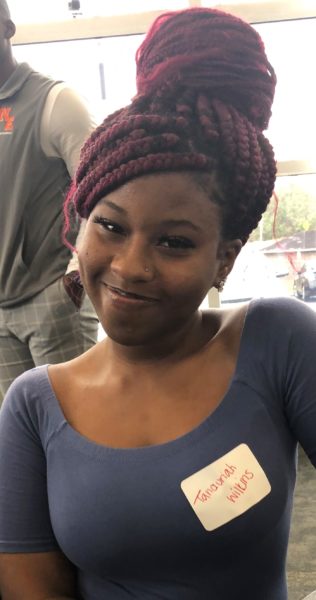
After the small group discussions, each candidate was invited to reflect on what they learned for 60-90 seconds with the whole group.
At the close of the town hall, the students answered two questions via survey: As a rural student from Edgecombe County, what is the most important issue that you want our next state superintendent to do something about? And, what is one thing you think candidates may not fully understand about your perspective as a student? All of the student’s responses were shared with the candidates.
The candidates were invited to stay and continue the conversation over lunch with the students.
Some early takeaways. I had the privilege of greeting the students as they were getting off the bus and welcoming them to the town hall. I wish I had invited the candidates to join me. We will change that next time around. We will also make sure to have a member of the EdNC team at each table to facilitate — just to make sure the students have enough time to weigh in. Based on student input, we decided not to livestream the event to foster the in real time engagement — and I am happy with that decision.
In the days to come, Lindenberg will be rolling out more information about our model, including a playbook, and the EdNC team will be posting video from the event.
Early feedback on the model
Our Burroughs Wellcome Fund North Carolina Teacher of the Year Mariah Morris said:
Students were completely engaged in the meeting and led small-group discussions with the candidates that were relevant, thought-provoking, and powerful examples of what happens when students are given the microphone.
Civic literacy was alive and thriving in this meeting, and the depth of conversation and engagement was an unbelievable experience to watch. My guess is the candidates for state superintendent learned a tremendous amount from this experience and left with ideas grounded in practice and real-world application.
Edgecombe County Public Schools’ students today emerged as leaders in policy questions that are the center of state-level education debates. From restorative justice to school-based mental health services to engaging academic curriculum, these students guided in-depth conversations rooted in the educational realities of our high school students. It was a truly powerful day.
Freebird McKinney, the former Burroughs Wellcome Fund North Carolina Teacher of the Year said:
TODAY, I witnessed transformational change. TODAY, I witnessed my former student, with her colleagues from EdNC, lead a revolution in how we allow students’ voices to be heard and incorporated into the narrative of change considered by policy makers, particularly the NC Superintendent Candidates and their views, lenses, and perspectives. TODAY, I listened to students share their perspectives and they were listened to and they BECAME the teachers.
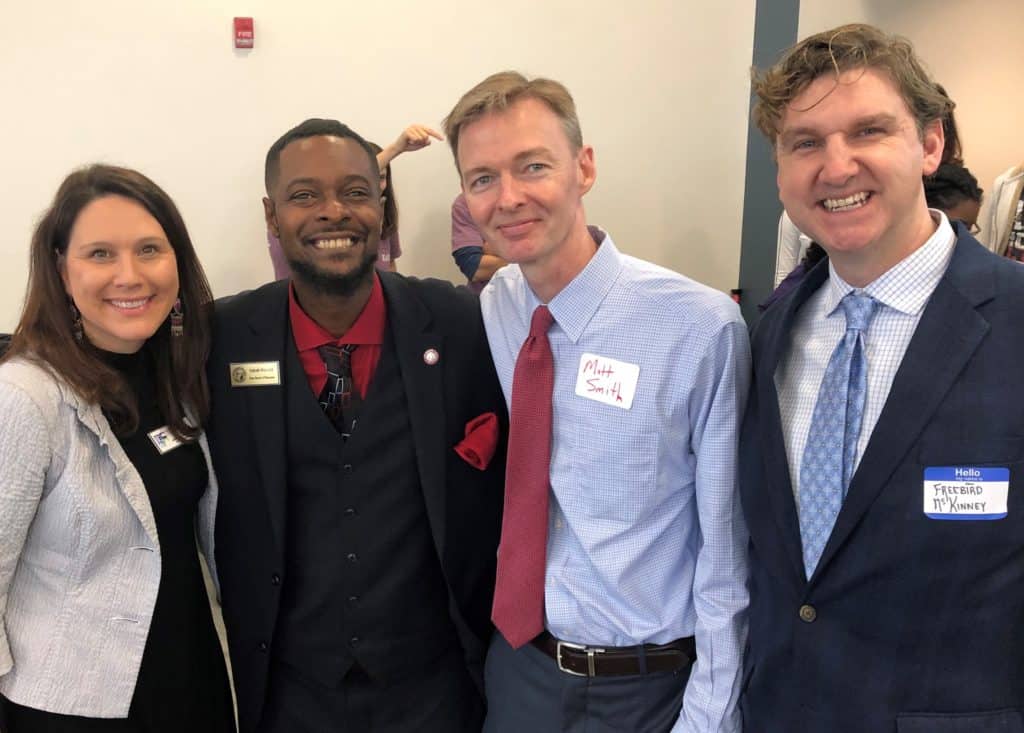
“This town hall meeting was not the typical one where candidates drone on about their agendas and answer polite surface questions about their qualifications and ideas,” writes reporter Amelia Harper in the Rocky Mount Telegram. “This was a very visual, energized, student-led process that involved personal engagement and forced candidates to listen and dig deep in giving responses.”
Colin Campbell, editor of The Insider, tweeted, “This is an unusual way to get candidates to take a literal position on key issues, but I like it.”
This moment in time
2020 is here. The primaries in North Carolina will happen in three short weeks. The general election will happen in nine short months.
Across all of our lines of difference, there’s a lot of talk right now about the future of democracy.
There’s also a lot of talk right now about the role of the media in our elections and our democracy.
Our colleague, Sarah Alvarez, the founder and editor of Outlier Media in Detroit, recently wrote, “one of the things that holds us back is that we’re beholden to the news more than we’re beholden to our communities.”
At EducationNC, our community is our students and our schools, and we are beholden to nothing but a better future for them.
100% of the students surveyed said they would like to attend more events like the town hall. This is the future of democracy.
To our candidates for governor, lieutenant governor, and superintendent of public instruction — expect an invitation in the fall.
My thanks to the candidates for showing up and being game. My thanks to the EdNC team for creating spaces where magic happens. My thanks to the Lenfest-Facebook Journalism Project and the John M Belk Endowment for funding our innovations in engagement through town halls. My thanks to the school leaders of Edgecombe County for always saying yes when it comes to putting students first.
To the students. You brought your hearts. You brought your minds. But most importantly, you brought your voices. Thank you.


